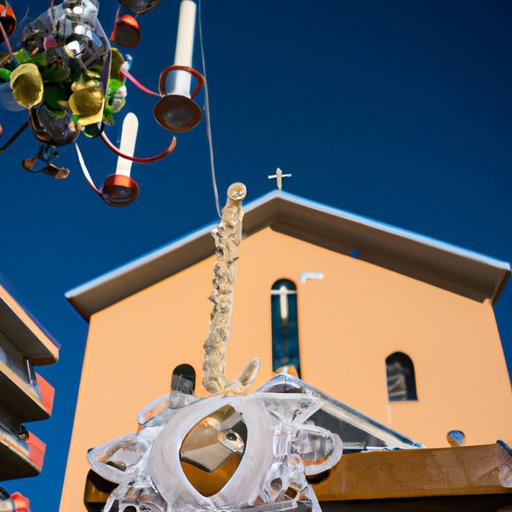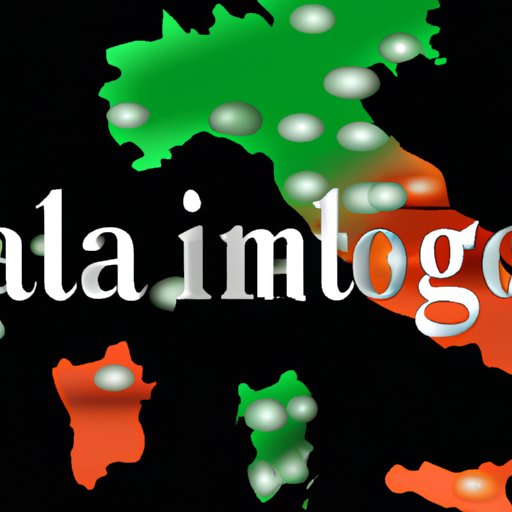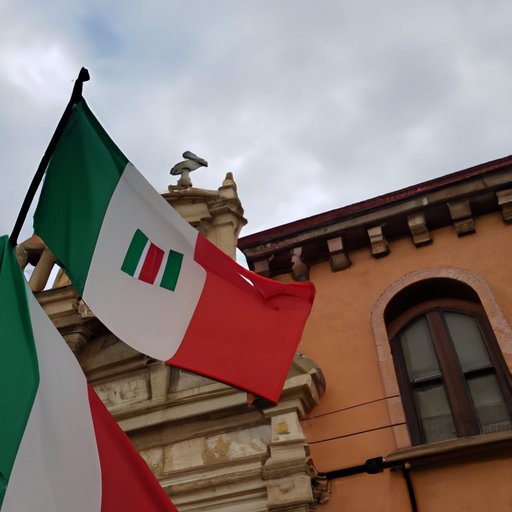Introduction
Italian culture is one of the most influential in the world. It can be seen everywhere from fashion to food to architecture, with its roots stretching back centuries. From ancient Rome to the Renaissance to modern times, Italian culture has been an important part of European history and continues to shape the world today. In this article, we will explore the various aspects of Italian culture, including art, music, cuisine, religion, and the impact of Italian immigration on global culture.
Art, Music and Architecture of Italian Culture
Italian art and architecture have had a profound influence on the world. Ancient Rome was responsible for some of the most iconic structures in the world, such as the Colosseum and Pantheon. During the Renaissance, Italy was the center of the artistic world, with artists like Michelangelo and Leonardo da Vinci creating masterpieces that still stand today. Contemporary Italian art and architecture continues to be innovative and influential, from the works of Giorgio Armani to the buildings of Renzo Piano.
Music has also been an integral part of Italian culture since ancient times. Traditional folk songs, operas, and classical music all have their roots in Italy. Today, Italy remains a major player in the music industry, with a thriving pop and rock scene. Famous Italian musicians include Andrea Bocelli, Luciano Pavarotti, and Eros Ramazzotti.
Food, Wine and Cuisine in Italian Culture
Food and wine are key components of Italian culture. Each region of Italy has its own unique cuisine, from the hearty dishes of Naples to the seafood-based dishes of Sicily. Popular Italian dishes include pizza, pasta, risotto, and gelato. Italian wines are renowned worldwide, with regions such as Tuscany and Piedmont producing some of the best wines in the world.

Religion and Traditions in Italian Culture
The Catholic Church has had a huge influence on Italian culture. The Pope and the Vatican City are located in Rome, and the Church plays an important role in Italian society. Holidays and celebrations are based around religious events, such as Easter and Christmas. Italians also observe traditional festivals such as Carnival and La Festa della Repubblica.
Family Values in Italian Culture
Family is at the heart of Italian culture. Respect for elders is highly valued, and gender roles are traditional. Education is also important in Italian culture, with parents investing heavily in their children’s education.

Impact of Italian Immigration on Global Culture
Italian immigrants have had a significant impact on global culture. Italians have settled in countries all over the world, bringing with them their language, customs, and cuisine. This has resulted in a rich cultural exchange, with many countries adopting Italian traditions and cuisine as their own. Italians have also made significant contributions to society, from science and technology to art and literature.
Conclusion
Italian culture has had a profound impact on the world. Its art, music, cuisine, religion, and family values have shaped the way we think and live. The impact of Italian immigration on global culture has been immense, with Italians contributing to every aspect of society. Italian culture is a testament to the importance of cultural exchange and the power of tradition.
(Note: Is this article not meeting your expectations? Do you have knowledge or insights to share? Unlock new opportunities and expand your reach by joining our authors team. Click Registration to join us and share your expertise with our readers.)
